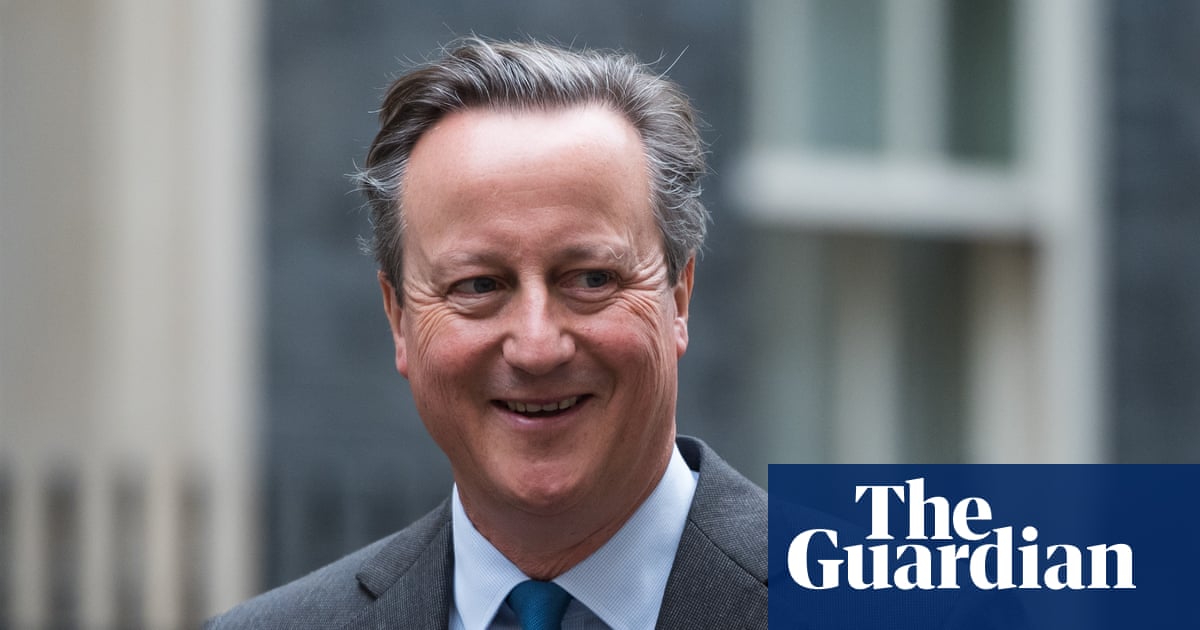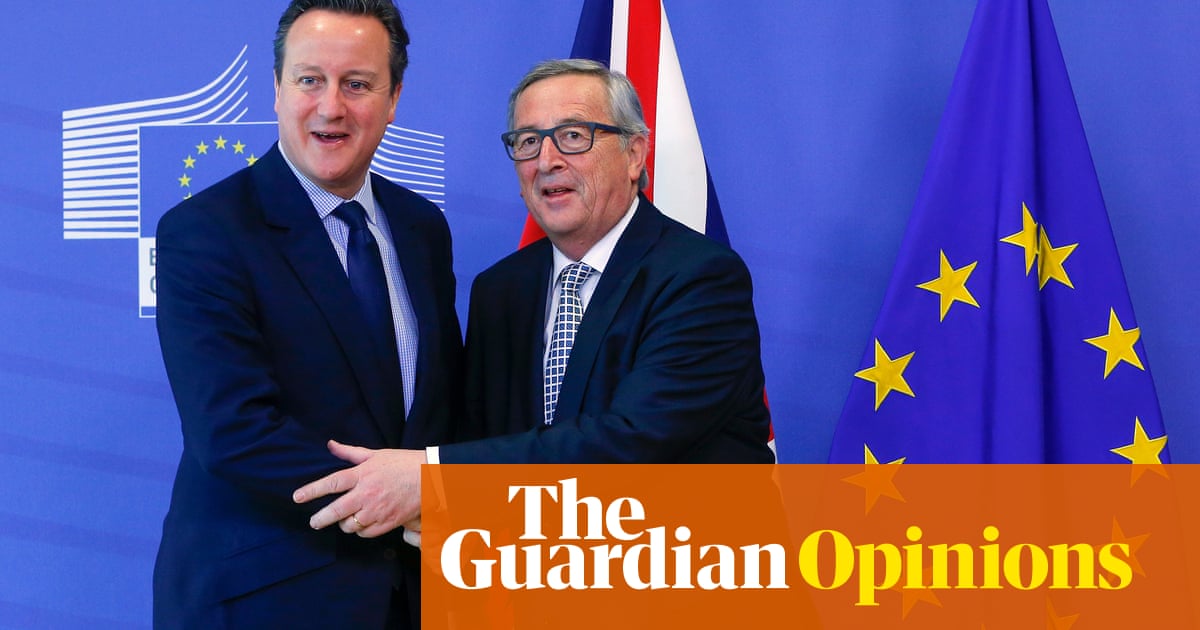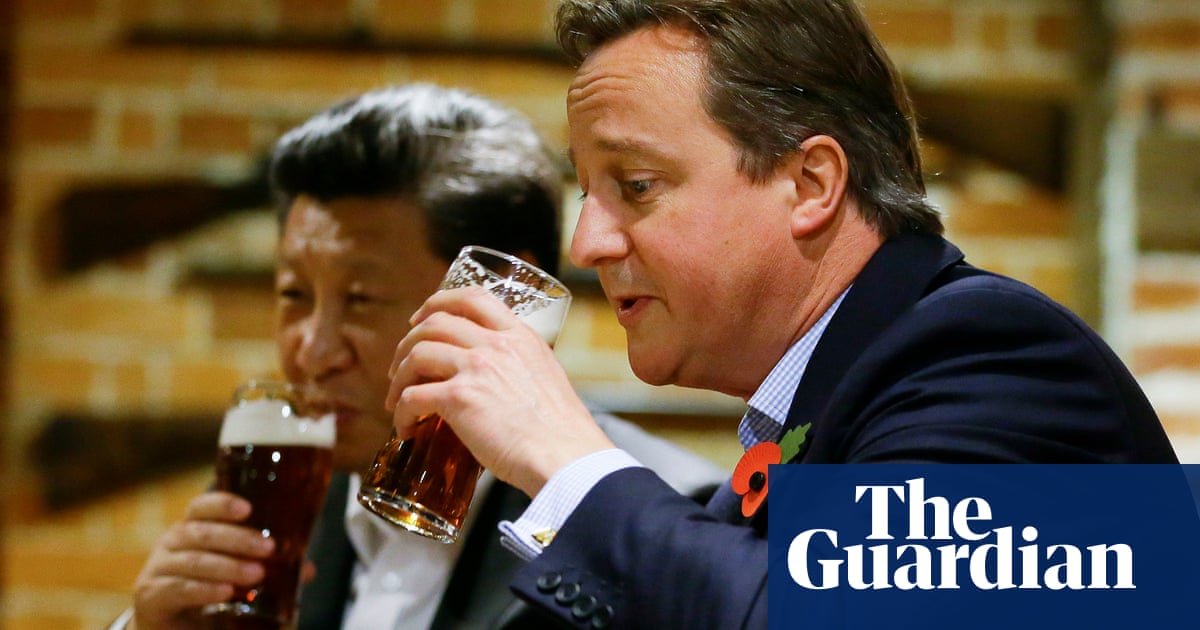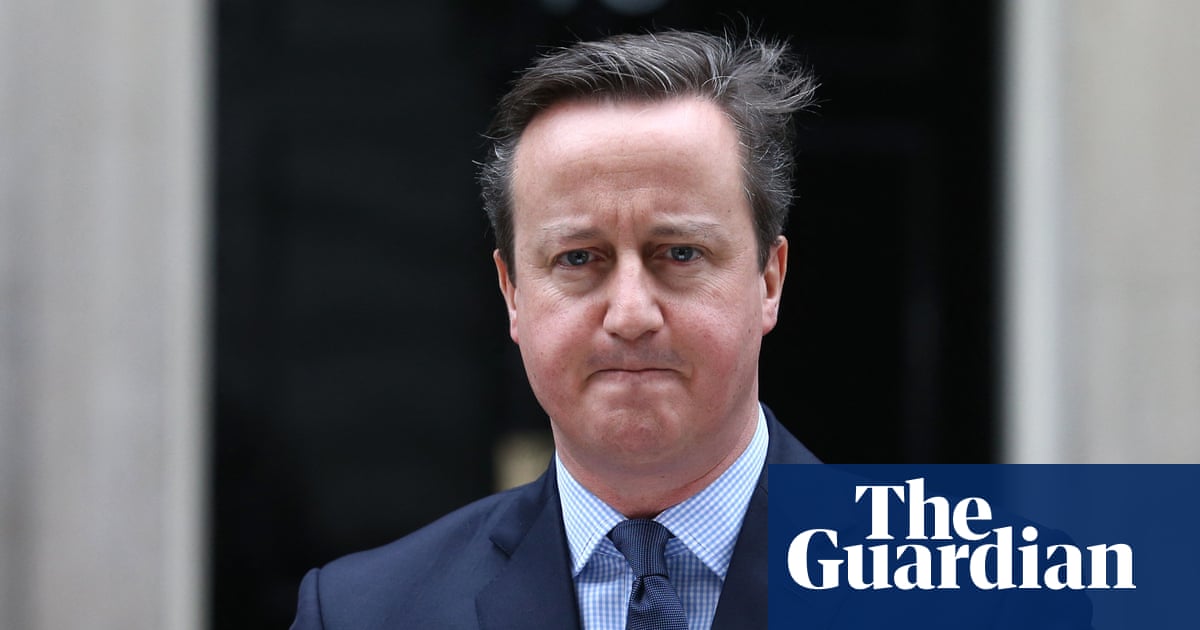
“One may be tempted to think that David Cameron’s appointment as foreign secretary and elevation to the House of Lords is symbolic of a prime minister and government that is running out of ideas,” says Simon, 60, a retired IT professional from Chichester, historically a safe Tory seat. “However, that implies that [Rishi] Sunak had any ideas to start with.”
Simon, who voted Lib Dem at the last general election and is yet to make up his mind about how he will vote at the next one, is one of hundreds of people who shared with the Guardian what they made of Cameron’s shock return to government.
“There has been little evidence of any Conservative ideas, good or bad, for 14 years. Dog whistle politics – blaming those without the ability to defend themselves – has been one obvious strategy,” he says. “I guess we’ll see over the next few days, but Cameron’s appointment might indicate a lurch towards the political centre in an attempt to win back middle ground Conservative voters who are thinking of deserting them at the next election. Will people forget the wreckage of our society and economy? Some people have short memories.”
Nick, 24, a civil servant from London who has dual UK and EU citizenship, is in two minds about Cameron’s appointment as foreign secretary, and may end up as a voter Rishi Sunak will have won back with his new cabinet.
“Cameron’s return is a positive development. I feel it is moving the Tory party away from radical views that developed under the leadership of Boris Johnson. Now, we might see a more centrist government,” he says. “Cameron was a strong advocate for the EU, meaning that the UK might move closer to the EU once again. [In terms of] negatives – I feel it would be better for the ruling party to bring someone new with fresh ideas to the table.”
He voted Labour at the last general election “due to the ongoing failed talks regarding the EU deal”, he says. He is undecided about how he will vote at the next one.
“I think I’m once more leaning to vote for the Labour party, seeing the U-turns on different policies and the ongoing turmoil inside the Tory party. But the Tories can convince me to vote for them in the next general election if they actually deliver on their promises to reduce inflation, combat the housing crisis and maintain the level promised on environmental standards. The appointment of Cameron would lead me to vote for them more depending on his approach to UK-EU relations.”
Lisa Frederiksen, 55, a UK national who moved to Denmark with her family a few months after the 2016 Brexit referendum, cannot wrap her head around how Cameron has managed to rehabilitate himself politically.
“[Cameron’s appointment] shows the Tories are lacking vision, lacking drive and lacking talent,” she says. “He lost my respect when he plunged the country into this mess, into the unknown. He could have stayed as caretaker PM [after the referendum] while an orderly transfer of power took place. But he cowardly left the very day the country needed stability [the day after the referendum]. And he should never have called the referendum without setting clear margins for winning 60% or more votes.
“It is total arrogance for the Tory government to bypass parliament [because Cameron is not an MP]. Are we really so devoid of talented Tory MPs that they need to scrape the barrel of has-beens to fill key government posts? It’s shameful that British politics have stooped so low.”
Frederiksen has been watching the economic and political turmoil in Britain with dread from abroad and wonders how leaders from the EU and the rest of the world will receive Cameron in his new role as Britain’s top diplomat.
“How can Cameron be taken seriously on the international stage? He was against Brexit, how can he seriously argue to other nations now that they should do business with the UK and take us seriously, when he himself took the very steps that have weakened the UK?”
Paul, 66, a retired director of a large UK company from the north-west of England, is flabbergasted by Cameron’s position in Sunak’s cabinet.
“I am confused and deeply concerned by the appointment. The UK’s current economic malaise of low growth and high inflation can be traced back to two significant government interventions: the misguided austerity programme that funded tax cuts with the intention of stimulating UK growth, and the decision to hold a Brexit referendum,” he says.
“Of course, we know that the growth promised from the tax cuts did not materialise and Brexit is forecasted to have a significant negative impact on UK growth by all serious economic forecasters. David Cameron was the architect of both of these and has only been heard of since resigning from government for aggressive lobbying on behalf of the collapsed Greensill Group, from which he reportedly made about $10m. How can a UK prime minister invite such an individual back into the government, let alone as the British people’s representative on the global stage?
“I am concerned that [Cameron’s involvement in] the Greensill scandal appears to be considered as acceptable practice and is awarded with an honour. We are becoming a laughing stock of the world.”
For Brian McAllister, who runs a landscape gardening business in the mostly rural blue wall seat of Arundel and South Downs, Cameron’s return to the Tory frontbench will not change a thing.
“The lightweight public schoolboy that foolishly started it all and divided this country – that’s what people think around here,” says McAllister, 53. “Quite poetic really that he should be back for the Tory swansong. Annihilation awaits next year. Tory voters in my area are saying they’re either not going to vote or that they’ll vote Lib Dem. I think there won’t be much of the Tory party left after the next election.”












